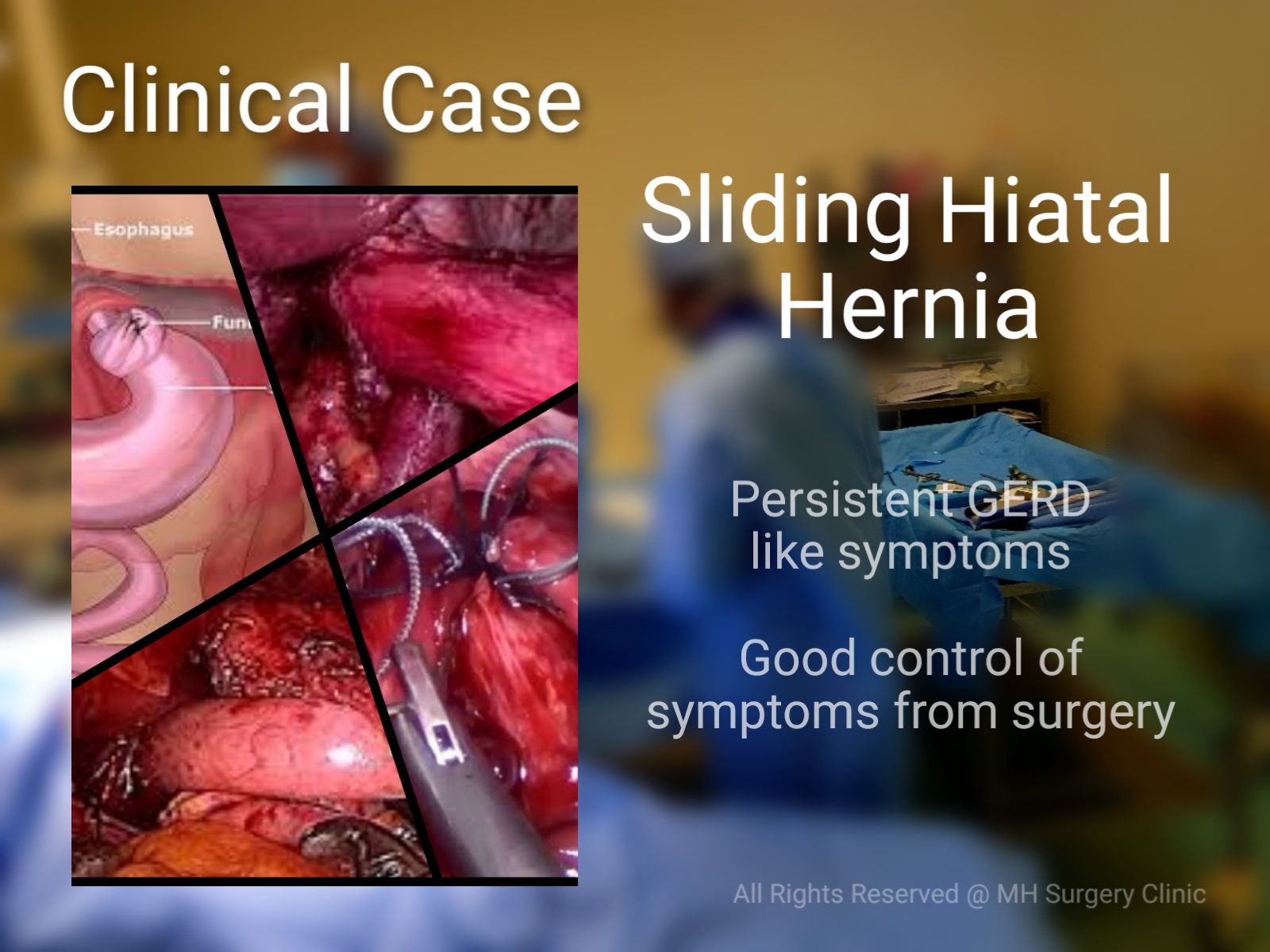-

Sliding Hiatal hernia is the protrusion of the stomach through the esophageal opening. This is a very common disease. The symptoms are very common mainly consist of recurrent gastritis symptoms and heartburn. In severe cases, there can be inflammation of the esophagus and possibly leading to mucosal changes in the GE ( gastroesophageal junction ).
In Sliding Hiatal hernia there is loss of distal esophagus and stomach location in the abdomen, with sliding of part or entire of these organs through esophagus hiatus into the chest. Hiatal hernia is a very common disease and is often associated with gastroesophageal reflux disease. It mostly affects middle-aged women and causes symptoms like cough, heartburn, dyspepsia, dysphagia, and in severe cases loss of weight. Here we describe hiatal hernia in a young adult who presented with recurrent symptoms of vomiting and weight loss. She was previously evaluated and was misdiagnosed as cyclical vomiting.
During her visit to our surgeons at Surgical Gastroenterology Center in MH Surgery Clinic, she was evaluated with High-resolution Endoscopy and underwent 24hr Ph monitoring and manometry studies. We found that here symptoms correlated more with increased reflux of gastric contents because of a lax esophageal sphincter mechanism. She was diagnosed with a small sliding hiatal hernia with symptoms of GERD. She was promptly offered a surgical correction. This was only possible after careful and close evaluation of the investigations by MH Surgery Clinic Surgeons.
During the surgery, we found a sliding hiatal hernia with a loss of intrabdominal length of the distal esophagus. This was causing lax lower gastroesophageal function. Surgery included lengthening the distal esophagus and creating a new valve mechanism using the funds of the stomach. All this was performed via a Minimally Invasive Advanced Surgery technique. The patient recovered extremely well and remained with significant low pain and was discharged home.
In many cases there's no association between clinical symptoms and hernia width: large hernias can remain asymptomatic for all life, while small hernias can cause important discomfort. All cases need careful evaluation and management. Patients can present not only a clinical history related to gastroesophageal reflux disease but also with compressive effect of the herniating stomach against chest structures as vessels, nerves heart, and lungs mimicking heart attack or even pulmonary embolism. Patients require careful evaluation and surgical correction which is available at Surgical Gastroenterology Center in MH Surgery Clinic.

